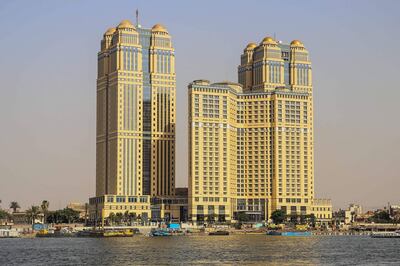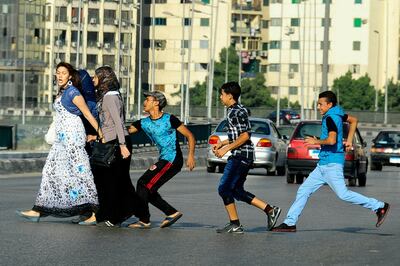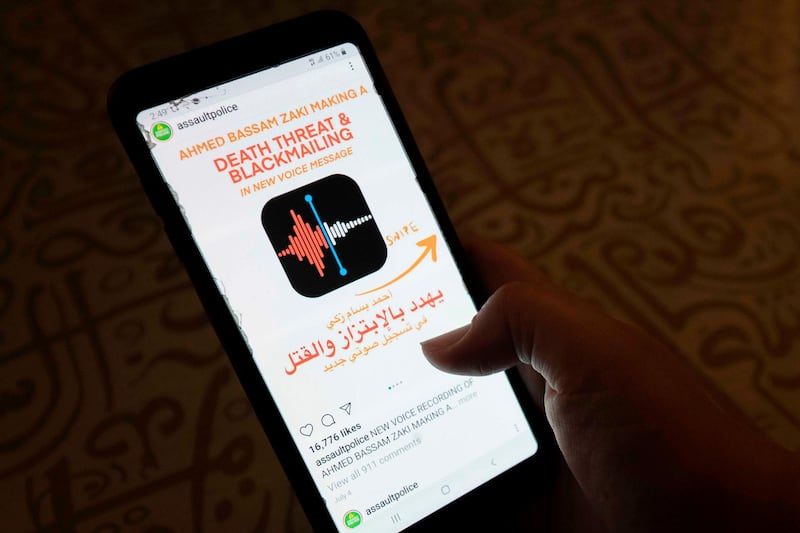Egypt’s #MeToo movement has swiftly gained momentum but it is unclear where it is headed, analysts say.
They say they cannot tell whether it will endure or what tangible change, if any, it will bring to a patriarchal society that treats women as inferior and uses religion to crush them.
Inspired by the movement’s lightning rise and spread in the US, Egypt’s version has caught on, making waves that could alter the gender landscape in the mostly Muslim nation of about 100 million people.
The magnitude of the sexual harassment problem in the most populous Arab nation cannot be exaggerated.
In 2013, 99 per cent of women interviewed by the UN said they had been sexually harassed.
In 2017, experts told Thomson Reuters Foundation that Cairo was the most dangerous major city for women when it came to such harassment.
Since its inception, the movement in Egypt has been fuelled by a handful of encouraging actions and grand gestures from powerful institutions.
But in a country where genuine change has traditionally been slow and conservatives have a big say on the scope and reach of social reform, it is anyone’s guess what the future holds.
The analysts believe Egypt’s #MeToo movement is partly shackled by the country’s powerful class-based social structure and the public’s on-and-off interest in protecting women from abuse, and the elevation of their place in society.
But the painful and graphic stories of sexual assault or harassment being told by women is forcing a national reckoning of the problem.
For too long the problem has been swept under the rug, as victims fear social ostracisation or their families are too worried about staining their reputation to try to bring the culprits to justice.

Another trend working in favour of the movement is that the victims have been willing to publicly name their attackers.
It is a tactic that in some cases led to arrests, although in others it led to victims being silenced by threats from the culprits, their families or friends.
“The attention paid to the issue of sexual harassment in the media and social media has struck fear in men’s hearts,” said Shady Lewis Botros, an Egyptian author and analyst in London.
"They are worried now and they fear being publicly shamed or even going to jail."
But he said the #MeToo movement in Egypt resonated with only a small segment of society.
“The movement remains mostly restricted to the secular elite, rights groups and some media outlets,” Mr Botros said.
“Most women from the lower classes cannot publicly recount their experiences with sexual assault because they risk a violent backlash from their families.
"Those who can do that without retribution mostly belong to that small circle.”
But the government has tried to keep up with the rapid spread of the nascent movement.
President Abdel Fattah El Sisi has been a champion of women’s empowerment, lavishly praising their roles in society and giving them key Cabinet positions.
Parliament last month sought to encourage more women to come forward and press charges against attackers through legislation offering victims anonymity throughout the legal proceedings.
The country’s chief prosecutor has, albeit somewhat belatedly, initiated investigations into two high-profile cases of sexual assaults.
They involve a gang rape at a central Cairo hotel in 2014, and the case of a privileged Cairo university student who allegedly assaulted and blackmailed about 50 women over the past two years.
Al Azhar, the world’s foremost seat of Islamic learning for Sunni Muslims, gave the movement a massive push when it came out strongly in support of women seeking legal retribution against offenders.
It also dismissed the widely held view that the way women are dressed in public is a cause of sexual harassment, calling the notion a “delusional excuse” entertained by “sick people".
As far back as 2014, the government toughened punishment for convicted sexual harassers, who now face up to six months in prison.
Harassment on the streets of Cairo, however, remains rampant, with offenders sometimes as young as 10 or 11 and often operating as a pack.
But perhaps the most significant sign of change to come out of the movement is the courage shown by a growing number of victims in going public with their stories, to seek retribution and find peace after months or years of bottling up deeply scarring experiences.

Also notable in the #MeToo movement is the use of social media networks to publicise testimonies about sexual assaults, call for the arrest of suspected perpetrators and publish the names and photos of the alleged culprits.
But none of this comes without a price.
The Instagram page that sparked the movement, Assault Police, was forced to shut down after death threats and blackmail messages were received by its administrator.
They came after the publication of the names and photos of a group of young, wealthy men who allegedly assaulted a woman after drugging her in a five-star Cairo hotel.
The account had 170,000 followers. It remains up but its contents have been deleted.
“We’re speaking out, even if we’re not getting revenge, even if we’re not doing anything to hurt these people,” said Sama, 20, a university graduate and victim of a sexual assault that took place in June.
"We’re taking back our lives by speaking out, by exposing these people.
“It was really inspiring for me to finally speak out about it because I know now that I’m not alone. Now I know that people are going to support me and that it's not my fault.
"No matter what I think and no matter what happens, it’s not my fault. He never had the right to do this to me."
Sama's attacker was a man she knew who was two years younger than her.
“We’re showing everyone now that we have a voice," she said. "But I don’t know if I can call it a step forward until justice is served.”
Author and sociologist Ammar Ali Hassan shares Sama’s cautious optimism about how much change women should expect from the #MeToo movement.
Mr Hassan said the issue, like others, dominates social media and the national conversation for a time before another equally compelling topic edges it out of the limelight.
“We have had long-running issues that are not met with legislative, social or even religious resolutions, so they keep popping up again and again,” he said.
“Those issues stay unresolved and most people show no interest in them until a horrible incident happens, then it captures the public’s interest for a while before it disappears from the public sphere again.”






